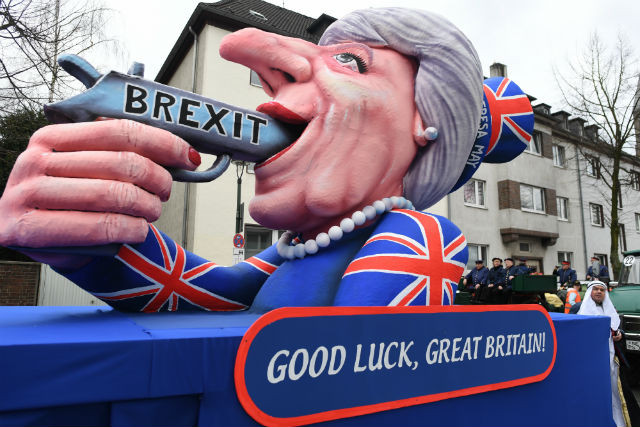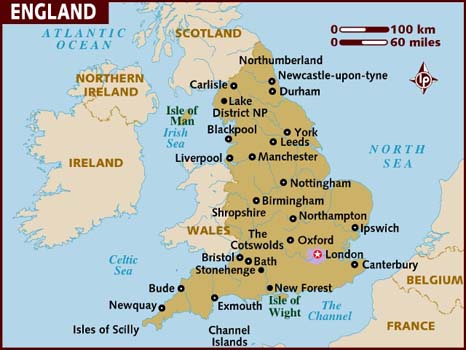THE HINDU JAN1,2018:Brexit: Britain's Future
|
Brexit: Britain's Future |
||
|
Background
|
· Post the Second World War, two countries Germany and France came together and decided that they wanted to establish trade relations as it would prevent their countries waging war against each other in the future. · The result was the 6 members (France, Germany, Italy, Belgium, Luxemburg and Netherlands) signed a deal covering resources like coal and steel. · In 1957 a treaty was signed in Rome (Europe)-European Economic Community (EEC) or Common Market · This has expanded and now has 28 member states. · There are four key institutions in the EU o European Commission- based at Brussels (Belgium), it consists of 28 commissioners (1 each from the member states, it administers the money spent and also formulates new laws o European Parliament- based at Brussels (Belgium), there are 751 members in the parliament, their function is to discuss and vote all the laws that have been proposed by EC o Council of European Union- based at Brussels (Belgium), It is where the government of each member country will have their say and hold discussions as to in what political direction should the EU be moving. Usually the deals are signed at the end of the discussions o European Court of Justice- based at Luxembourg. The function is to make sure that all the member states abide by the rules and regulations; will also come into picture if there are any frictions between the above three institutions.
|
|
|
Constitutional Provision of Brexit:
|
Lisbon Treaty (Article 50) provides for exit of member countries from European Union. For any country to come out of European Union, it has to negotiate a deal with EU. The deal will provide for a settlement between EU and UK
|
|
|
Impact of Brexit: On UK
|
Impact of Brexit: On UK
|
|
|
Positive effect
|
Negative effect
|
|
|
Trade: The Brexitters feel, it can secure better trade deals with important countries like China, India and the US. It will negotiate a new EU relationship without bound by EU laws. EU Budget: Britain can stop sending £350 million (equivalent to half England’s school budget), to Brussels every week. This money could be spent on scientific research and New Industries. Regulation: The general feeling is prevailing that leaving EU could mean better and greater regulation, especially in areas like employment laws and health & safety. Immigration: Eurospectics believe that leaving EU could help Britain reform its policies in this regard by having a sensible regime for the movement of people over skilled and non-skilled people. Britain can change the expensive and out of control system that could offer an open door to EU and Non EU immigrants, who could contribute to Britain. Influence: Those in favour of Brexit believe that leaving the EU would allow Britain to regain their seat on international bodies where EU represents them, and use their greater international influence to push for greater international cooperation.
|
Trade: Britain avoids exporter tariffs and red-tape, which is important because nearly 45% of its trade goes to EU. Another benefit is that being a member, Britain can obtain better trade terms, because of the EU’s size. Brexit would damage Britain’s export competitiveness. EU Budget: On the budget front, the Stronger In Campaign contends that the benefits outweigh the costs. Its annual contribution to the EU is equivalent to £340 for each household, according to the Confederation of British Industries, all the trade, investment, jobs and other prices gave £3,000 per year benefit to each household because of EU membership. Regulation: By staying in EU, Britain can better negotiate for changing regulation. Most EU regulations, they argue is standardized and effectively collapses 28 national standards into one European standard, thus reducing red-tape and benefit businesses. Immigration: Pro-EU campaign says that leaving the EU will not stop immigration to the UK. Countries such as Norway and Iceland, which are not a part of EU, as per the European Free Trade Association, have to accept free movement and have higher rate of immigration including from EU countries than Britain. Influence: Pro-EU campaigners’ rests on the fact that Britain is represented twice in international organizations by foreign secretary and EU High Representative. Staying in Europe might only result in better cooperation, which has helped them tackle issues of global concerns like Ebola and piracy in Africa.
|
|
|
|
Consumers face rising prices after Brexit unless Britain can replicate trade deals negotiated by the EU with dozens of other countries “everyday products that people buy week in, week out. Fish from Norway, wine from South Africa, clothes from Turkey – each of those have lower tariff rates on them than would exist if Britain didn’t have those deals in place.” The tariff on clothing from Turkey, a major supplier to the UK, could rise from zero to 12%, and duties on fish from Iceland could go from 3.4% to 11%.
|
|
|
Approach to UPSC GS 3- International economics, trade relations Questions 1. The BREXIT makes the global economic recovery more difficult-discuss 2. In the light of recent BREXIT what will be the impact on the Indian economy 3. When elephants fight, grass suffers-discuss the statement in the light of BREXIT
|
||


